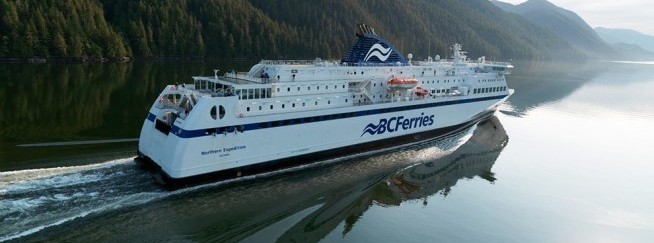Ferries and LNG go well together
Source: Times Colonist
Date: February 4, 2015
Predictions of liquefied natural gas powering B.C.’s future are still mostly talk, but at least one LNG dream will come true. B.C. Ferries has signed a 10-year deal that will see FortisBC provide LNG to power three ferries being built in Poland. In addition, the ferries corporation has received approval to refit its two largest ferries — the Spirit of Vancouver Island and the Spirit of British Columbia — so they can also operate on natural gas.
In promoting LNG exports, Premier Christy Clark has repeatedly emphasized the cleaner, greener aspects of natural gas as an energy source. Fuelling B.C. ferries with natural gas fits well with those efforts. It’s not a bad public-relations exercise.
But of course, it’s far more than that. Using natural gas is better for the environment and good for the budget of B.C. Ferries. Even with lower oil prices, using LNG will save the corporation money — natural gas is 30 per cent cheaper than the marine diesel fuel now burned in the ferries.
It also means B.C. is joining those leading the way in reducing emissions from marine vehicles. Legislation around the world aims to limit emissions from ships’ engines, many of which burn heavy bunker oil, the tar-like stuff left over after all the better stuff is taken out of crude oil. It’s about the cheapest fuel there is, but it’s also the dirtiest. One study concluded that 16 of the world’s largest ships produce as much sulphur pollution as all the world’s cars combined.
Natural gas, while it does give off carbon dioxide when burned, yields almost no sulphur and a fraction of the nitrogen oxides produced by the burning of bunker oil or marine diesel.
The move toward using LNG as a marine fuel is gaining momentum. With increasingly stricter emissions regulations, ships’ owners are faced with installing “scrubber” technology on existing power plants or adopting new types of less-polluting fuels, including LNG. While the conversion to natural gas is happening mainly with smaller vessels, one marine risk-management society estimates that LNG will be the dominant fuel used by merchant ships within 40 years.
B.C. Ferries’ venture into the use of LNG is welcome, but it is by no means a first. LNG-powered ferries have been built in Norway since 2000, and that country has 20 car and passenger ferries operating on LNG. STQ, Quebec’s ferry company, has ordered three new LNG ferries, and Washington State Ferries is proposing to use LNG on its vessels, as is Staten Island Ferries in New York. LNG passenger vessels are under construction or planned in Argentina, Finland, Uruguay and Sweden.
B.C.’s new and refitted ferries will operate with dual-fuel systems, running mainly on natural gas, but using diesel as a backup.
“We have every intention to operate full-time on LNG,” Mark Wilson, B.C. Ferries’ vice-president of engineering, said last July as he announced the signing of the contract for the new ferries with the Polish company Remontowa Shipbuilding.
Running those five vessels on LNG will save about $12 million a year in fuel costs, about 10 per cent of B.C. Ferries’ annual fuel bill. The environmental savings are a little harder to measure, but they will still be significant.
While B.C. Ferries’ LNG effort seems modest compared to the shining dreams of LNG prosperity promised in the last provincial election, at least it’s an effort that is assured to bring some benefits to British Columbians in the foreseeable future.



Site design by Ravensfoot